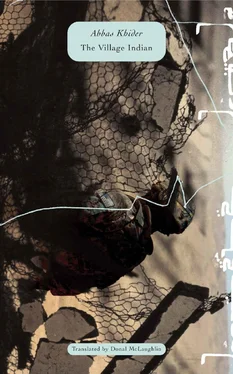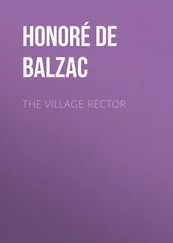And that’s still not all. My notes — meant, actually, to underpin my memories — represent a danger . I’ve been afraid to confide important things to my diaries since I became aware of the danger of losing them. I wrote — and write — in them only rarely, which is why I call them my ‘monthlies’. An entry once a month. Twice, at most. Not because I didn’t feel like writing. But because it wasn’t easy to write a new entry.
In Baghdad, where I was born and grew up, I had to hide everything. During Saddam’s rule, a single word was enough to cost you your life. That’s why I used symbols to write down all kinds of things. I made up my own alphabet with Roman and Arabic letters, patterns and numbers that no one but I could decode.
Later, during my escape through the Arab countries, I used the same technique to survive the police checks, when they searched everything — literally, everything. For those emergencies I’d modified my alphabet by adding colloquialisms from southern Iraq. That way, I could note the names of presidents, their atrocities, their slaughters — unknown acts of resistance, too — without anyone even beginning to suspect anything.
Nowadays, though, the problem is that I can barely decipher that alphabet. Even though it’s my invention. The keys to the symbols have fallen through the holes in my memory and so the doors to my notes from those days remain permanently locked. To make matters worse, quite a few pages — through the years and in the course of my escape — have also become illegible, for I always write in pencil, even now.
I can suppress any thought of lost writings but my diaries exist and they keep reminding me of the loss that can be measured exactly by counting the many pages full of my hieroglyphics.
I’ve suffered another loss. My writings, I think sometimes, are like gypsy tribes and always disappear into some hole or other. One afternoon I came home to find the worst fate imaginable awaiting me — my father had become a Saddamist. The news made the tears pour from Heaven. Our family home wasn’t far from the bus stop. The part of town I was born and grew up in — Madinat al-Thawra, the town of the revolution — was calm. Only the patter of rain. Strange weather passed over the district. The square opposite our house — littered with empty oil and tomato-purée tins, broken schnapps bottles, punctured car tyres and twisted bicycle wheels, and where a donkey lived — filled more and more with water. A small lake had formed outside our house and into it flowed streams from our neighbours’ yards. As if by magic, shit, rubbish, rotten food was being pushed up from the seepage pit and pooling — stinking like hell — in front of all our homes. My mother usually greeted me with a tasty meal when I got home. This time, though, it was my manuscripts and books that greeted me, drowning in the dirty water outside the house. Like fallen soldiers, they looking up at me in terror. I was hysterical, as any Iraqi is when panic and disbelief blend.
I went in. ‘That was Father,’ my sister said.
My relationship with my father was never the same. We grew to hate each other. Were like two strangers. Since that day — I have to admit — I was very hard-hearted about him. The sight of him made me sick. But I’d often felt like that, lately, when I looked at myself or many of my fellow humans. We’ve all mutated into creatures of the imagination. How else can you explain a state declaring as criminal any act of reading and writing outside the schools and universities? Which is why my father thought it best to destroy my books and my writings. Fortunately, I’d hidden all the banned books beneath the pigeon cages on the roof. So my father ended up destroying only the permitted books he’d found in my room. How was he supposed to know the difference anyway? Illiterate, he was unable to write even his name.
Adding fuel to my father’s fears, the Iraqi secret service turned up at our house one day. And put me in prison for eighteen months and four days. Because, at some time, and at some place, with friends who worked for banned political parties, I’d spoken ill of the president and helped distribute flyers. In jail, there was neither pen nor paper. The guards considered such things dangerous. A pen could be used as a dagger, after all. Or to write subversive information.
And so, like all prisoners, I wrote on the walls. Our pens were little stones. I wrote a lot. If the walls had fit, I wouldn’t have hesitated to pocket them!
Writing on the prison walls involved a certain danger, though — the guards were constantly checking for banned slogans. The Central Prison, where I was, was full of members of Islamic parties who used the walls just as diligently — to write down holy verses from the Koran. And who’d have dared to erase even a single line of that to write something else? He’d have been labelled an infidel faster than he could blink.
The day came, finally, when I got to write on clean white paper. From one day to the next I’d fallen ill. Due to the damp in the jail, many prisoners suffered from skin diseases. I got a completely new one that made my skin look burnt. Fearing it might be contagious, the officers in the prison had me transferred to al-Rashid military hospital in Baghdad. There, in the ward for prisoners, I was able to persuade the warden to get me a pen and paper. I stayed in hospital for a whole week and wrote non-stop. Wrote, without thinking. The best stuff I’ve ever written, perhaps. When life confronts you with grief and great confusion, you always write something special.
‘You’re going back to the Central Prison today,’ the prison guard said to me a week later.
‘Can I take these pages with me?’
‘No!’
‘Please! I beg you! You look like someone from southern Iraq. My father’s from the south too. Please help me — please!’
‘Okay, but don’t tell anyone.’
‘I won’t! Promise!’
He took all my clothes, my underwear too, carefully undid some hems and, then, incredibly skilfully, hid my pages in them. Not even the Devil could have guessed that something was hidden in my clothes.
When I was finally released, I couldn’t believe at first that I was free again. There’d been a government amnesty for all political prisoners. I returned home in the same clothes the secret service had taken me away in. Incredible! I was getting to see my family again and they, me. I was overjoyed. And confused. I had difficulty grasping reality. Everything seemed like a dream. My mother gave me a clean set of clothes. Only days later did I ask her, ‘Where are my things?’
‘What things?’
‘The ones I had on when I came home.’
‘Oh — they were full of lice and stank like hell. I burnt them.’
I was still in Baghdad when the next loss hit me. My time in jail was behind me, true, but deep within my soul the memory of it burnt brightly. Life outside the prison walls wasn’t very different from inside. I felt that there was no longer a life for me. I imagined that everyone was against me, was spying on me, wanted to be rid of me at the earliest opportunity. I could hardly sleep at night. I crouched until dawn on the roof of our house, watching the street like a hawk, convinced that the police would come for me again. And if, by chance, I was able to sleep, I’d wake up in the middle of the night, bathed in sweat. ‘Don’t hit me. I didn’t do anything! Please — leave me alone! I’m innocent!’
My family feared I was going mad. I was haunted almost daily by this nightmare and desperately wanted it to stop. One night, I locked myself in my room, threw the books and notepads from the shelves into a pile and then sat on top of it. Poured petrol, lit a match and let it drop. The fire spread quickly. Everything round me began to slowly become ash and smoke. It was such a wonderful feeling. I was free. Floating away with every charred scrap, every plume of smoke. Suddenly, there was a crash. My brother’d kicked in the door. Then dragged me away from the fire. The next day I got hold of a map of the world and decided to escape. To another country. Far away.
Читать дальше












